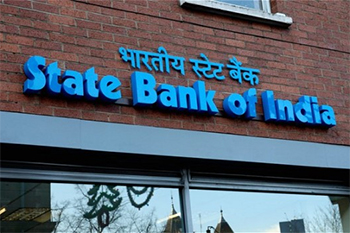
Anniekanwar
The largest state bank, the State Bank of India and the largest private bank, HDFC Bank, have raised interest rates. The Punjabi National Bank, the epicenter of $ 2 billion fraud, did the same.
This is happening against the backdrop of how the Reserve Bank of India (RBI) instructed lenders to move to a single tariff regime for all customers. Previously, loans were tied to the base rate. However, since April 2016 the base rate has been replaced by the marginal interest rate (MCLR), which is more cost-effective for clients. MCLR was intended only for new loans, although cheaper rates could be used for older ones by posting a request and paying an additional fee.
However, all loans will be tied to MCLR since April 2018. It is expected that the new regime, along with several other factors, will increase spending of banks. Analysts believe that they are forcing banks to increase lending rates.
For example, the rising interest rates on deposits. According to the RBI as of February 16, loans from Indian banks grew by 11.59%, while deposits increased by 5.39%. Slowing down the growth of deposits, as well as making them more expensive, credit rates should be raised to protect profits.
Besides, Indian banks are struggling with a huge volume of "bad" debts in the amount of 9.5 trillion rupees. The growth of loan rates helps to mitigate the impact of increasing non-performing assets. There is still a weakening of India's government bonds.
"Oil is growing on a global scale, and the situation with the budget deficit is worsening in India, so bond yields are affected and it affects deposit rates. To preserve bank deposits, lenders will have to increase rates and thus lending rates to protect their profits ", said Ashutosh Kumar Mishra, a banking analyst at Reliance Securities.
Therefore, analysts expect an increase in interest rates. In the past few months, RBI has kept rates, at which banks borrow from it, unchanged. However, it is possible that the position of the banking regulator will soon change.
In February, when one of the members of the Committee on Monetary Policy RBI voted to raise rates, another noted the need for such an increase, if the situation in the economy does not improve.
source: bloomberg.com
This is happening against the backdrop of how the Reserve Bank of India (RBI) instructed lenders to move to a single tariff regime for all customers. Previously, loans were tied to the base rate. However, since April 2016 the base rate has been replaced by the marginal interest rate (MCLR), which is more cost-effective for clients. MCLR was intended only for new loans, although cheaper rates could be used for older ones by posting a request and paying an additional fee.
However, all loans will be tied to MCLR since April 2018. It is expected that the new regime, along with several other factors, will increase spending of banks. Analysts believe that they are forcing banks to increase lending rates.
For example, the rising interest rates on deposits. According to the RBI as of February 16, loans from Indian banks grew by 11.59%, while deposits increased by 5.39%. Slowing down the growth of deposits, as well as making them more expensive, credit rates should be raised to protect profits.
Besides, Indian banks are struggling with a huge volume of "bad" debts in the amount of 9.5 trillion rupees. The growth of loan rates helps to mitigate the impact of increasing non-performing assets. There is still a weakening of India's government bonds.
"Oil is growing on a global scale, and the situation with the budget deficit is worsening in India, so bond yields are affected and it affects deposit rates. To preserve bank deposits, lenders will have to increase rates and thus lending rates to protect their profits ", said Ashutosh Kumar Mishra, a banking analyst at Reliance Securities.
Therefore, analysts expect an increase in interest rates. In the past few months, RBI has kept rates, at which banks borrow from it, unchanged. However, it is possible that the position of the banking regulator will soon change.
In February, when one of the members of the Committee on Monetary Policy RBI voted to raise rates, another noted the need for such an increase, if the situation in the economy does not improve.
source: bloomberg.com





